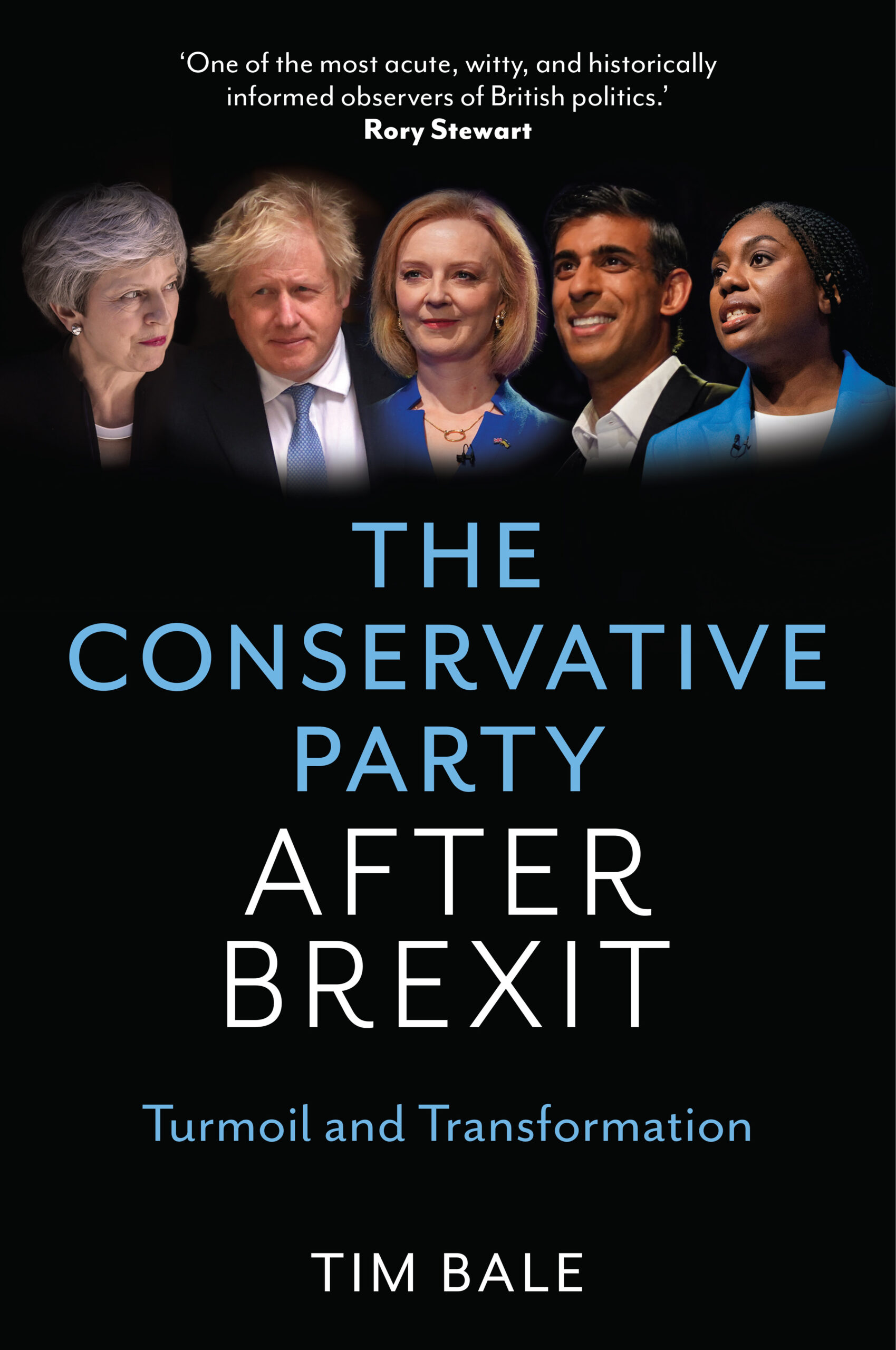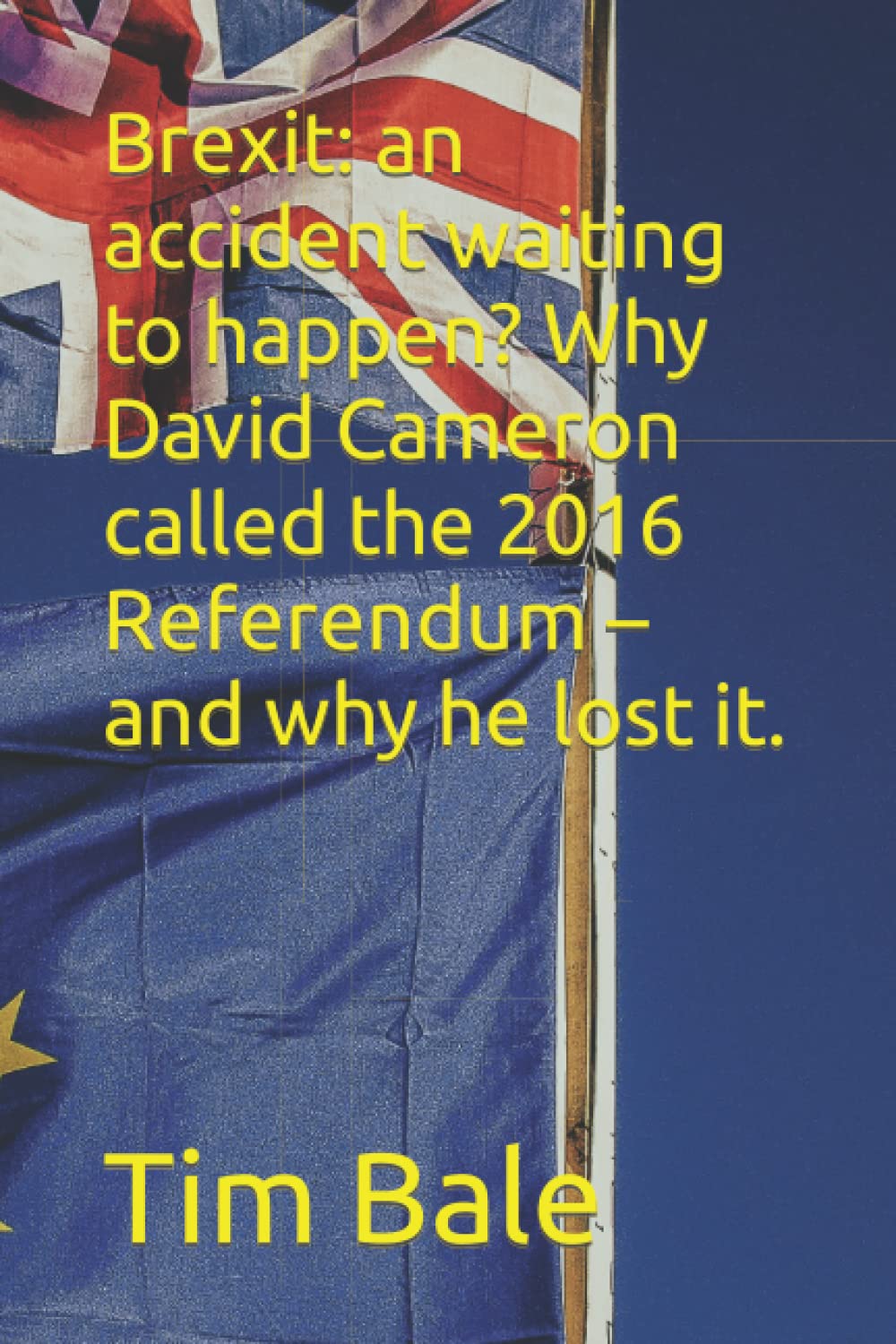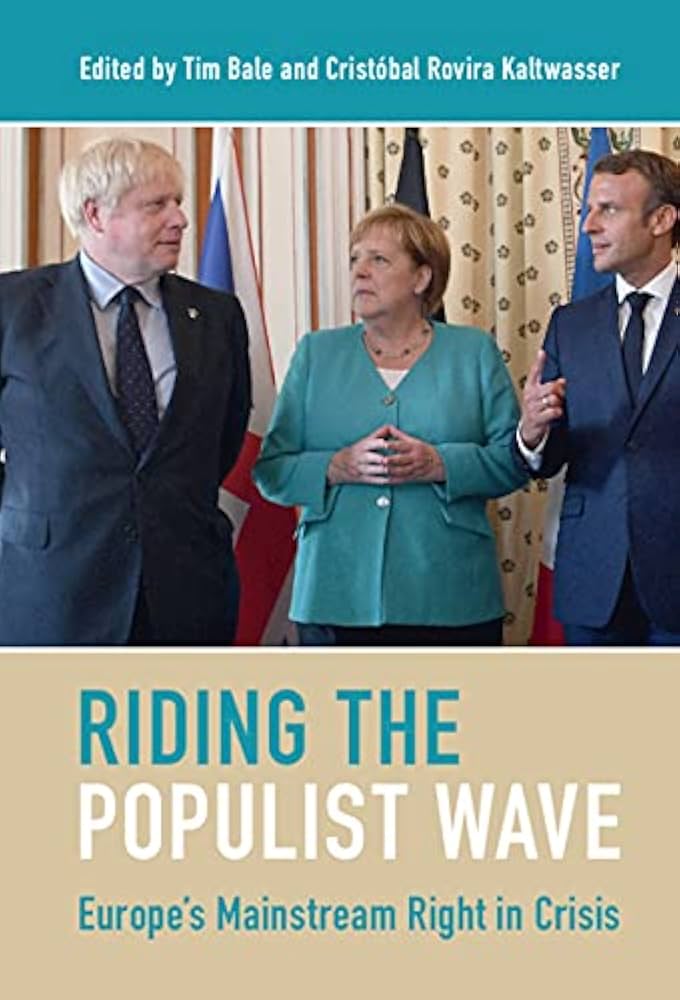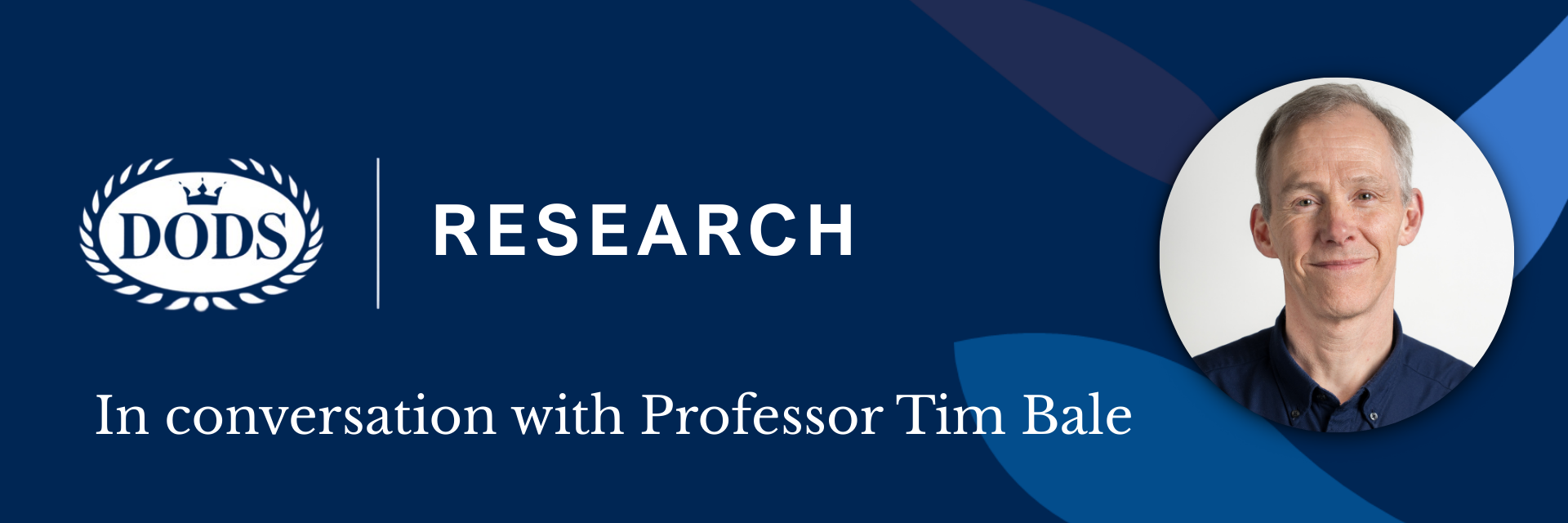Welcome to our Dods Research interview series. This is where we talk with leading academics in the UK about their area of expertise and what they can tell us about UK politics. As part of our Dods Research collaboration with Queen Mary University of London, our inaugural interview features Professor Tim Bale, and it covers topics including the nature of the Conservative Party, local elections, and polling.
About Dods Research
Dods Research, in collaboration with experts from Queen Mary University of London, can provide you with the critical insights you need, when you need them. This on-demand research service, currently available in the UK, offers bespoke reports designed around your needs, with output built to cater toward three key challenges that all public affairs teams face: what’s happening in policy right now, what can we do to change it, and who can make this happen.
Joshua Wells: Since David Cameron, the casual observer of British politics, has seen a succession of different Conservative leaders and Prime Ministers without an obvious set of beliefs that unify them. Historically, the party has at least been perceived as united by certain ideals, such as respect for the rule of law, and economic competence. Looking to the present, are there any positive principles or ideals that unite the Conservative Party under Kemi Badenoch’s leadership?
Tim Bale: I think there is a kind of blue thread, as it were, running through the Conservatives — their leaders and their members. And that thread is the idea that the state should be as small as possible, commensurate with holding on to power.
Now, that sometimes requires Conservative leaders — and their supporters — to accommodate an electorate that doesn’t necessarily share that instinct. The public is often more positive about public services and state provision than Conservatives would ideally like. But even so, I think many Conservatives still aim to ensure the state doesn’t grow too large. I wouldn’t necessarily say they want to shrink the state — which can sound a bit pejorative — but they certainly want to keep it in check.
Of course, that instinct can run into difficulties during moments of crisis — a financial crash, say, or a pandemic — when governments are forced to spend heavily and intervene in areas they might usually avoid. But overall, the ambition to reduce spending where possible and to lower taxes where feasible still holds the party together.
Now, there are clearly tensions within the party, especially around cultural and social issues. Interestingly, our research suggests that Conservative MPs are actually more socially liberal than you might expect — certainly more so than the party membership and more than most Conservative voters. That said, most still pay lip service to a kind of cultural or social conservatism, especially around issues like immigration. While there’s clearly been a range of leaders in recent years, I do think many of them still share those underlying ambitions — even if they interpret and express them in slightly different ways.
Joshua Wells: It’s fair to say there are three themes in your answers: power, a smaller state and low taxation. Do you think this is enough to keep a party united, or is more required for them to be unified?
Tim Bale: Well, I think the old cliché still holds — that parties in first-past-the-post systems like the UK’s have to be broad churches. There has to be room for a certain level of internal disagreement, as long as there are a few core themes that people can rally around. In the past, you might have added a commitment to Britain’s strength on the world stage coupled with a desire to avoid too many foreign entanglements, particularly in relation to Europe. I think that the instinct is still quite strong within the party.
But I do wonder whether recent developments in the United States — especially under President Trump — might force the Conservative Party to reassess that worldview. Atlanticism has long been at the heart of Conservative foreign policy thinking, shaping how many Tories see the world. But if, as increasingly seems the case, we can no longer rely on America as a steadfast ally — regardless of the so-called “special relationship” — then that really does challenge some of the assumptions underpinning their view of Britain’s role in the world. And that, in turn, could open up tensions within the party. That said, as long as Conservatives continue to hold onto small-state ideals, as well as seeing themselves as the party of patriotism — of “king and country,” if you like — and believe there’s still a majority, perhaps even a silent majority, that quietly supports social conservatism, then yes, I think that’s just about enough to keep the party united.
Joshua Wells: The Conservative Party has long had a reputation for ruthlessness when it comes to its leadership. There have already been questions over whether Kemi Badenoch will still be in post come the next general election. What does she need to prove to convince the party — and the public — that she’s the right person to lead them into that contest?
Tim Bale: The Conservative Party is very leader-driven, but it’s also incredibly demanding of its leaders. The central demand is the ability to either win power or, if already in government, to hold onto it. And if a leader looks like they’re falling short on that front, the party tends not to give them very long to put things right. It’s actually relatively easy to get rid of a Conservative leader — certainly easier than removing a Labour one. It now takes a third of Tory MPs to write to the chair of the 1922 Committee to trigger a vote of no confidence.
And as we’ve seen, even if that mechanism doesn’t topple a leader immediately, it usually wounds them fatally — just look at what happened to Theresa May and Boris Johnson. So for Kemi Badenoch, the task is pretty clear: She needs to convince her MPs, the wider party membership, and — crucially — the donors that she’s on a path to victory.
Now, that doesn’t necessarily mean she has to win the next election outright. Given how badly the Conservatives fared in 2024, that may be too tall an order. But she does need to show that she can make significant inroads into Labour’s majority. That might not be so difficult in ‘normal’ times, especially with Labour polling as poorly as they are now. There’s often a seesaw effect in British politics — when Labour goes down, the Tories tend to go up. But Reform UK is complicating that picture. They’re effectively gate-crashing the party, and that makes it much harder for Kemi Badenoch to claw back ground.
There are two ways that could play out. It might mean Tory MPs become more impatient, or it could mean they’re a bit more forgiving, knowing she’s fighting on two fronts — against Labour and Reform. Personally, I’m inclined to think it’ll be the former. Unless she can demonstrate real momentum by around midterm — say, getting the Conservatives up to 30 percent or more in the polls — she’ll be in serious trouble.
Her challenge is made tougher by the fact that she has rivals. Robert Jenrick clearly still harbours leadership ambitions and is very much on manoeuvres. And then there’s James Cleverly, who isn’t serving in her Shadow Cabinet. That gives him a certain plausible deniability if things go badly and positions him well if a leadership contest arises. So yes, unless she can show appreciable progress by, say, 2026, her position will look very shaky.


Josh Wells: If we compare that to previous Conservative leaders, it doesn’t need to be a ‘Partygate’ or mini-budget-type event that brings down a leader — it could just be that, in two years’ time, if the polls still look grim, the party decides it’s time to move on?
Tim Bale: Exactly. And even though it might seem like a superficial metric, I do think performance at PMQs matters. Take the difference between William Hague and Iain Duncan Smith. The polling gap between them wasn’t huge — but Hague occasionally got the better of Tony Blair in the Commons. IDS never managed that. Those kinds of moments help a leader cling on. Without them, even a steady hand can look like a shaky one.
Joshua Wells: With the local elections fast approaching, one of the key talking points will be the performance of Reform UK. Any success for Reform is likely to present interpretive challenges for both the Conservatives and Labour. Given the distinct dynamics of local elections, how should both major parties think about Reform’s performance in this context?
Tim Bale: It’s important to recognise that local elections can be quite misleading when it comes to assessing a party’s overall standing. As you get closer to a general election, they become more instructive, but this far out, I think parties should be placing more weight on opinion polling than on local election results. Take William Hague’s time as Conservative leader, for instance — he was kept afloat politically, at least temporarily, by some improved local election performances. That allowed him and his team to point to supposed progress, even though the opinion polls at the time told a very different story. So that’s the first caveat I’d offer.
More specifically, if Reform UK performs well, both main parties are going to worry — and they already are. If Reform manages to make gains not only in these elections but also in the Runcorn by-election, that will spook Labour, and I’d argue Labour is already fairly spooked. The question is how Labour responds. At the moment, it seems to be falling into the same trap the Conservatives often do when it comes to dealing with the radical right — trying to chase after them, adopting parts of their agenda, language and policies in the hope of winning back voters. That rarely works.
Under the influence of figures like Morgan McSweeney — Starmer’s adviser and chief of staff — I suspect that’s the direction Labour may take. But the danger is clear: doing so could alienate Labour’s more progressive voters, which could backfire badly. The same risk applies, to some extent, to the Conservatives. There are plenty of socially liberal Tory voters who could drift to the Liberal Democrats instead. It would be a mistake for the Conservative Party to become so fixated on Reform UK that they overlook the threat posed by the Lib Dems — especially given how adept the Liberal Democrats are at converting local electoral success into parliamentary gains.
If both Reform and the Lib Dems perform strongly, then both major parties — Labour and the Conservatives — will have cause for concern. That said, we also have to be careful not to overinterpret local election results. But in this particular instance, I do think it’s important to watch Reform and the Liberal Democrats closely.
Joshua Wells: Let’s say you’re a civil society organisation or think tank that wants to use polling data to influence public policy in Westminster. You’ve got a message you genuinely believe in, and you’ve commissioned polling to back it up. What do you need to do to make that poll land — to make it compelling without sacrificing credibility?
Tim Bale: There’s always a trade-off in this space. On one hand, you want depth — a properly nuanced poll that can really probe attitudes around a specific policy issue. But on the other hand, you also want to make a splash — something that will grab attention with a headline-grabbing or controversial finding. Too often, organisations opt for the latter. And that’s understandable — we live in an attention economy. But ideally, you want both a poll that’s methodologically sound, explores the issue in some depth, and delivers a few striking findings that can lead a news story or hook in a policymaker.
There’s always a risk, though, of overinterpreting the results or spinning them too hard. That can backfire — especially if journalists or academics asked to comment, start pulling at the thread, and the whole thing begins to unravel. We saw a recent example with Channel 4, which reported on polling suggesting a significant proportion of young people were disillusioned with democracy and preferred the idea of a strong leader unbound by parliamentary constraints. That made for a strong headline, but when people began to dig into the data, the picture wasn’t quite as stark or clear-cut as originally suggested. The story lost its edge, and arguably, some credibility was lost in the process.
It’s a bit like a Budget announcement: if there’s something nasty hidden in the small print that comes to light a few days later, the whole thing can turn into a shambles. The same goes for polling. If your headline findings start to crumble under scrutiny, it can do more harm than good. Polling can be a powerful tool to draw attention to your cause. But what you want is attention — not notoriety.
Josh Wells: So I guess what you’re saying is: if you’re going to commission polling, be smart about how you communicate the findings. Be honest — don’t overhype it, and don’t dress it up too much.
Tim Bale: Yes. And I think most organisations would be very wise to listen carefully to the advice of the pollsters themselves, particularly during the back-and-forth over question wording and order. It might feel like splitting hairs, but it really matters — and it can save you a lot of grief down the line.
Having done polling myself on party members, I’ve always found that the pollsters’ input on those technical details is absolutely invaluable. They often spot issues you’d never think of — or suggest questions you didn’t realise you needed to ask. And sometimes, they simply stop you from making a misstep that could undermine the whole exercise.
So yes, if you’re serious about using polling to inform or influence public policy, the key is to approach it with intellectual honesty. Be clear about your aims, work closely with your pollsters, and resist the urge to oversell the findings. Done well, polling can be a really powerful tool. Done carelessly, it can backfire — and take your credibility with it.


Josh Wells: How important is time as a variable in polling? Let’s say you came to me and said: “Josh, I’ve done this really well — here’s a robust poll that shows X.” I might say, “Great work, Tim — but people change their minds.” So what would give me confidence that your poll reveals something deep about people’s beliefs or preferences, as opposed to something that could shift tomorrow?
Tim Bale: That’s a really important point. I think there are two main things you can do. First, you can supplement polling with qualitative research — focus groups, for instance — to better understand why people are giving the answers they are. That can help you distinguish between surface-level reactions and more deeply held views.
Second, you can repeat the survey over time. If the same results keep showing up — especially in different contexts — that builds confidence that the finding has some staying power. But yes, you’re absolutely right to flag that people are more fluid in their views these days.
One of the key trends we’ve seen is that people are far less anchored to partisan loyalties or ideological positions than they used to be. That makes public opinion more volatile. On top of that, preferences are endogenous as much as exogenous — in other words, they’re shaped not just by people’s life experiences or external events but also by what’s happening inside politics: speeches, media narratives, leadership performances. And it’s still possible — even now, when trust in politicians is quite low — for politicians to shift public attitudes by the way they frame debates or make arguments. That dynamic matters.
One of the limitations of polling is that it often asks hypothetical questions. Just because someone says they’d support something in theory doesn’t mean they’ll actually do so when it matters — or when they face trade-offs. So yes, we can try to get closer to the truth, but there’s no perfect method. People do change their minds. There’s no getting around that.
Josh: Do you have any good examples of unintentionally poor-quality or misleading polls?
Tim Bale: There are so many, but one stands out because it’s so recent and, I think, important.
Take that Channel 4 poll, it suggested that a large number of young people were disillusioned with democracy and supportive of a strong leader who isn’t constrained by Parliament or the rules. That kind of finding makes for a dramatic headline — and understandably sparked alarm. But when you dug into the data, the picture wasn’t nearly as clear-cut. It wasn’t that simple. And when that happens — when the nuance emerges after the media cycle has run with the top-line finding — you risk not only undermining your credibility but also legitimising the very ideas you’re trying to challenge.
Misleading polling doesn’t just risk embarrassment — it can have real political consequences, especially when it reinforces or normalises worrying narratives.
